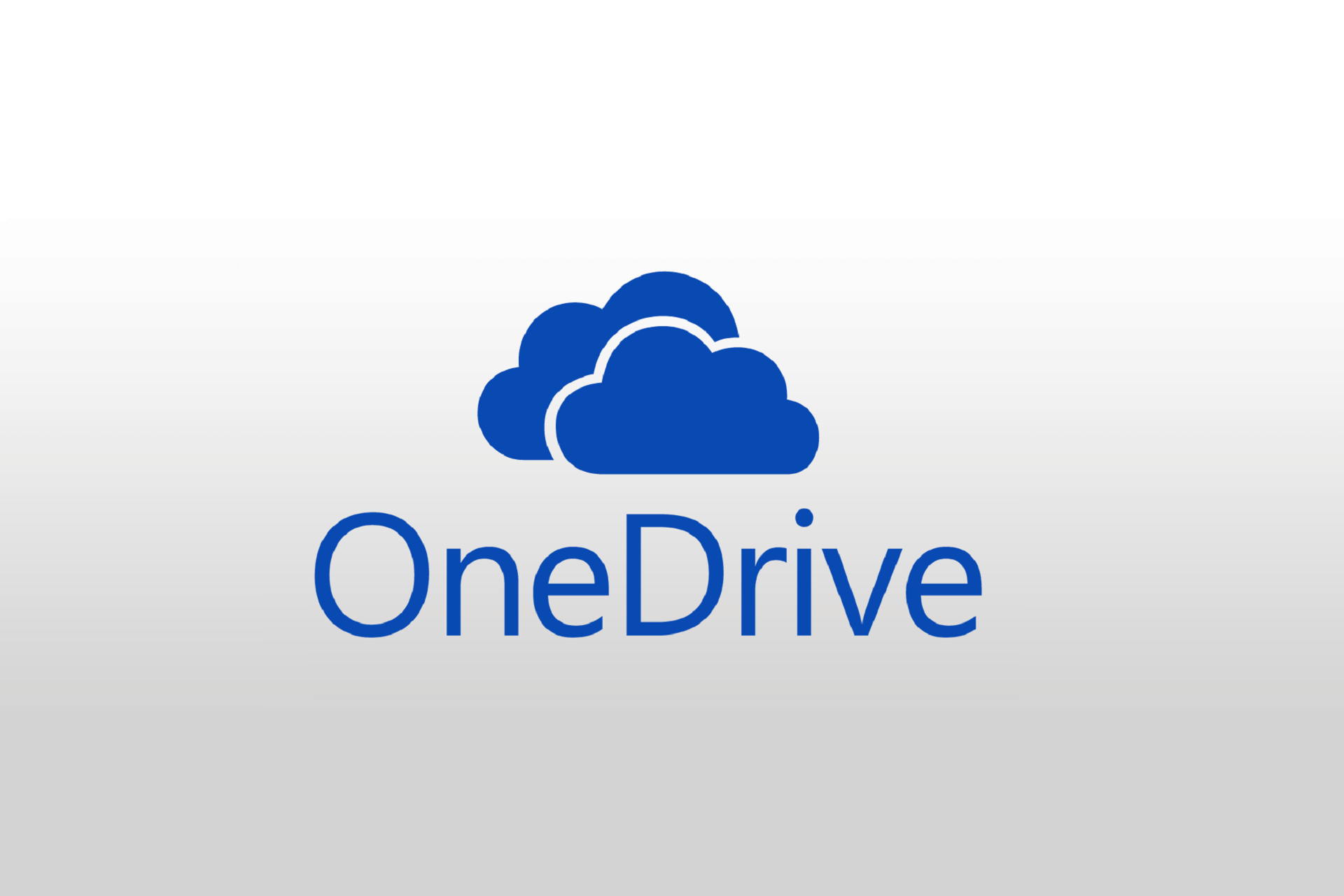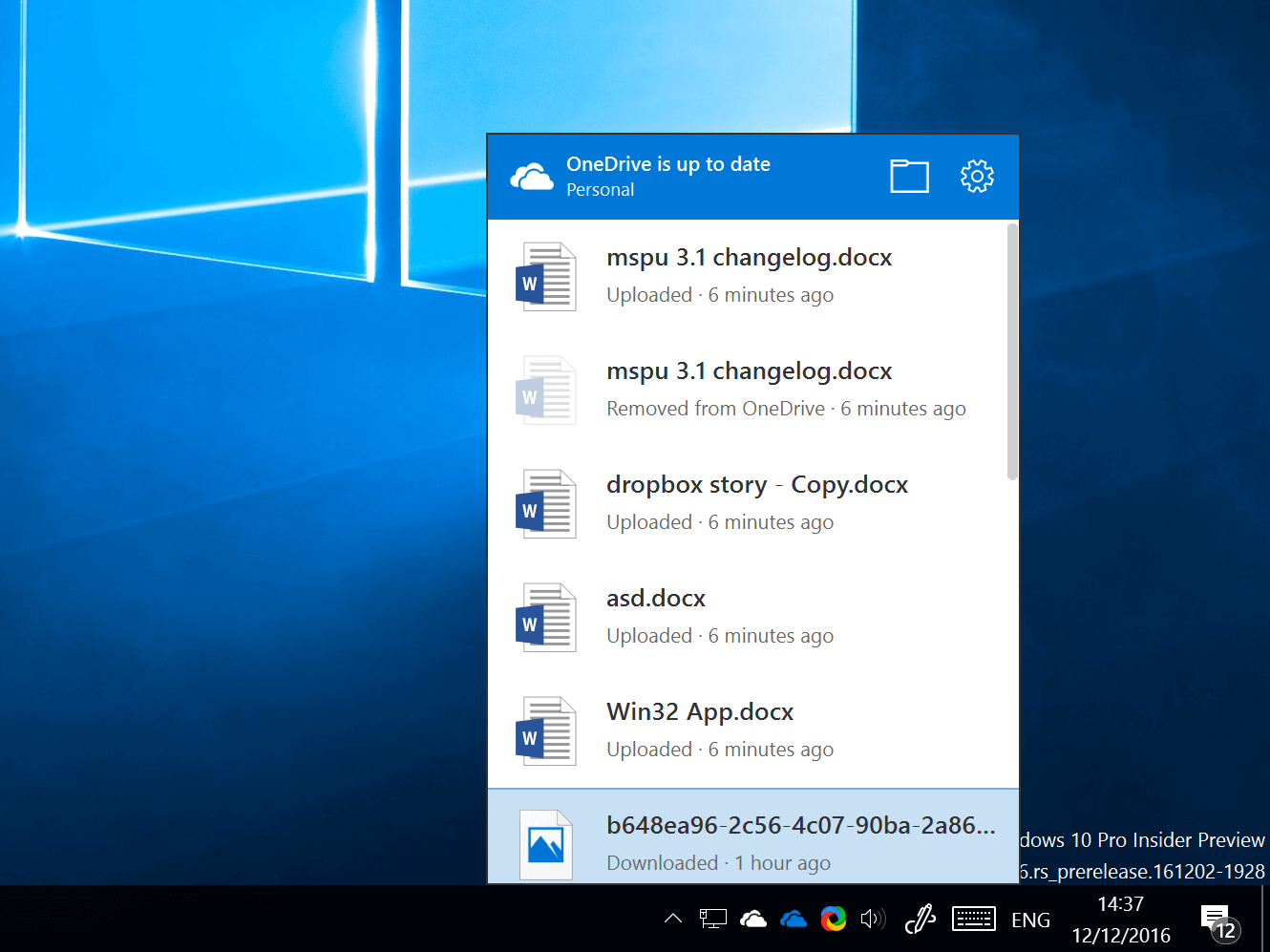
- GET STARTED WITH THE NEW ONEDRIVE SYNC CLIENT IN WINDOWS FULL
- GET STARTED WITH THE NEW ONEDRIVE SYNC CLIENT IN WINDOWS PC
- GET STARTED WITH THE NEW ONEDRIVE SYNC CLIENT IN WINDOWS MAC
Since Entity Framework has been a big hit with the. Object Relational Mappers (ORMs) allow developers to use strongly typed, domain-specific objects to work with relational data. Entity Framework Core: An Object Relation Mapper (ORM) for UWP apps In this circumstance, an ORM might be a more convenient way to go instead of using the vanilla C API. Often, developers might feel that they want to develop for the general case. For instance, a prepare statement can return an OK, an error, or an indication of misuse, allowing the developer to take a specific action based on each of these specific return codes. These sets of APIs give developers tremendous control over storing, retrieving, and manipulating data in a SQLite database with granular result codes. All of SQLite’s power is delivered by these six interfaces. There are six interfaces to perform database operations on these objects. To gain a sound understanding of how SQLite works, work backwards from the main task of the SQL database, which is to evaluate SQL statements. Details of the SQLite C API can be found at the page. SQLite databases can be created, updated, and deleted with the SQLite C APIs (we’ll also look at using C# to work with SQLite in the next section). In this post, we will touch on why SQLite works well on mobile platforms, discuss various ways you can consume SQLite in your C++ and C# UWAs, and look at some of the data developer tools our developer community has built. In other words, SQLite takes architecture and compatibility out of the data access layer equation for migrating your app to UWP.
GET STARTED WITH THE NEW ONEDRIVE SYNC CLIENT IN WINDOWS FULL
It works well on the full range of devices in the Windows 10 family and is already a go-to solution for developers on other platforms. It is cross-platform and cross-architecture.It’s a storage system that has just one user and one database instance. The creators put it in the public domain, so you can use and distribute it via your product with no strings attached. The client and the server run in the same process. (Copies of the files remain on your device. To stop syncing a site, click Stop sync next to the site. To change the folders that you are syncing, click Choose folders for that library, and then choose the folders that you want to sync.Click the Account tab to see a list of all your syncing sites.If the icon doesn't appear in the notification area, OneDrive might not be running.) (You might need to click the Show hidden icons arrow next to the area to see the OneDrive icon. In the activity center, select More > Settings.Select the OneDrive cloud icon in the Windows taskbar notification area.To stop syncing a site, click Stop Sync next to the site. To change the folders that you're syncing, click Choose Folders for that location, and then choose the folders that you want to sync.Click the OneDrive icon in the menu bar.

To change the folders that sync for a site, or to stop syncing all files on a site, follow the steps for the desired operating system. To sync the files on another computer, go to that computer and follow these steps again. This folder is automatically added to the left pane in the File Explorer. C:\Users\UaUsername\University of Alaska). The files will sync to a folder on your Windows computer named University of Alaska in your profile (e.g.

GET STARTED WITH THE NEW ONEDRIVE SYNC CLIENT IN WINDOWS MAC
The files will sync to a folder on your Mac computer named University of Alaska in your profile (e.g.

Note: You will only need to do the following steps once per device to setup syncing on that device.
GET STARTED WITH THE NEW ONEDRIVE SYNC CLIENT IN WINDOWS PC


 0 kommentar(er)
0 kommentar(er)
